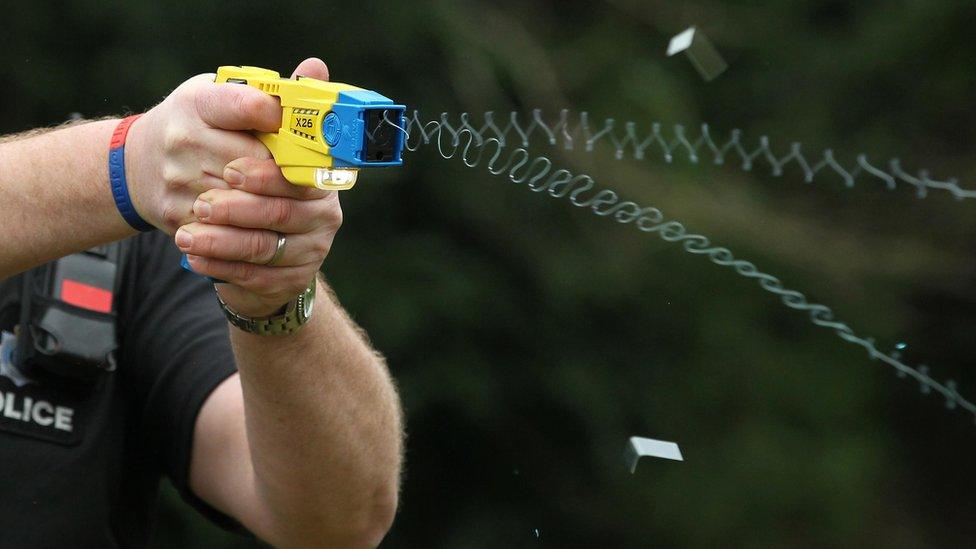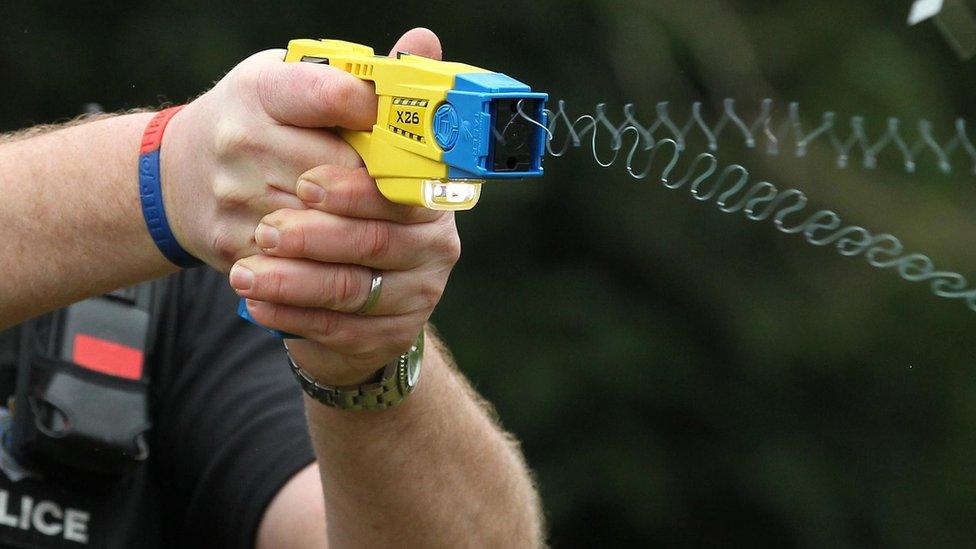Volunteer police officers to be armed with Taser stun guns
- Published

Volunteer police officers in England and Wales will be authorised to use Tasers, the home secretary has announced.
Priti Patel said in a speech to police that special constables should be able to use the electric stun guns if they complete the specific training.
The Home Office said it would ensure they are not "at a disadvantage" when facing attackers.
But Amnesty International called it a "dangerous expansion" in their use.
There are around 8,900 volunteer officers in England and Wales, who have the same powers and uniforms as paid officers.
Deployment of Tasers among volunteer officers will be an operational decision for each of the 43 individual police forces.
Conductive Energy Devices, known by their brand name Taser, fire a high-voltage shock to temporarily disable a suspect, and are often used to deal with violent or potentially violent people at a distance.
They were introduced in the UK in 2003, initially limited to firearms officers.
Their use was extended in 2008, to non-firearms officers who complete the required training.
Plans to further expand their use to volunteer officers will be announced by Ms Patel on Tuesday, in a speech to the annual conference of the Police Federation - the professional association representing officers.
To carry a Taser, "specials" will have to have completed 12 months' service and 200 duty hours after they have achieved "directed patrol status".
According to the College of Policing, this intermediate status allows volunteer officers to be deployed "in a supervised or managed environment, either on their own or as part of a team".
'Worrying erosion'
The move to equip volunteers with Tasers follows the passing of the government's Police, Crime, Sentencing and Courts Act last month.
The legislation allows special constables to join the Police Federation, giving them access to legal assistance in the immediate aftermath of incidents.
According to Home Office figures, external, Tasers were used 34,429 times in 2020/21, up from 32,058 times the year before.
In August last year, the policing watchdog said there should be clearer guidance to officers about when they should be used.
In a review, the Independent Office for Police Conduct (IOPC) said black people were more likely to face a Taser, and some officers were not considering the risk of injury to vulnerable people.
An IOPC spokesman said it recognised Tasers were "a valuable and legitimate tool for police officers".
He said the weapons "continue to be made available to more officers than ever before", adding that the IOPC welcomes the focus on appropriate training, as it recommended in its review.
But Amnesty International criticised the proposal to expand their use, saying they should be reserved for "highly-trained specialist officers, trained on a par with officers carrying firearms".
The campaign group's policing expert Oliver Feeley-Sprague added: "Arming volunteer officers is a dangerous expansion of Taser use and will inevitably lead to the increased firing of Tasers".
"It's our understanding that specials will be subject to a rigorous assessment prior to being selected to undergo Taser training, but arming volunteers who receive less training overall and do less hours on the job is a worrying erosion of safeguards over Taser misuse."
Related topics
- Published20 August 2019
